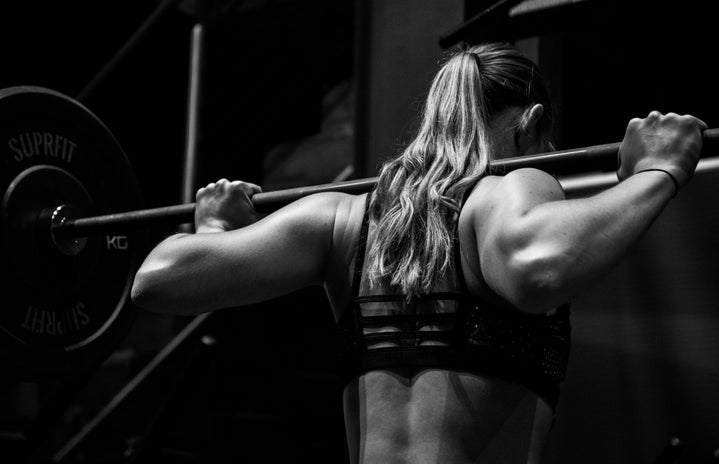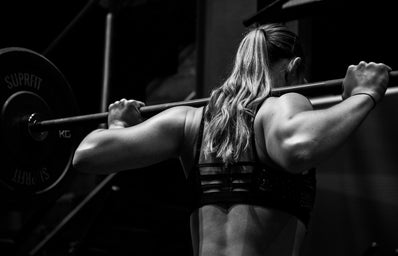It is April 2020. Long-distance walks are starting to get boring, and you have already tried all of the local hikes in your hometown. Scrolling through TikTok, you come across every teenage girl commending the Chloe Ting workouts to attain the perfect hourglass body. Might as well give it a try – you have nothing better to do with your free time. You start doing her YouTube workouts, focusing on the idea of toning your muscles to have a more slim but athletic look. Soon, you become obsessed with the concept of this ideal female figure in your mind until it encapsulates your every thought. Body checks, calorie counting, and nonstop up-down planks become your reality.
And, if you are anything like me, somehow you are now counting your macros and lifting your body weight five times a week at the gym.
The notion that women have to have a certain physique or figure in order to be seen in society is absurd. And, unfortunately, nowadays women also seem to be judged for how they go about attaining such a figure. All of which originates from the male gaze, which is internalized within the minds of most women as well. Sometimes, I will be alone in my dorm, and catch myself straightening my posture or making sure I look presentable – even though there’s no one to impress. Simply put, the internalized male gaze is as if I constantly have a man inside of me, watching and commenting on my appearance.
Why is it that certain exercise habits circulate just like fashion trends? That doing cardio is dubbed “lame” right now, but wasn’t three years ago? And, why do body standards also go through trends? My body is neither a fad nor a quick fetish to be appreciated only for a few years at a time. In the early 2000s, low rise jeans as well as slim waists and thigh gaps were the desired physique. Yet, when the Kardashian family gained popularity in the media with their slim-thick figure, this became the ultimate goal for many influencers to show off their curves. Now, at the turn of the 2020s, we begin to see the same thin body back in style – even the manager at H&M the other day warned me that low rise jeans and even tinier tops are coming back to her sale floor soon.
My question: just as media and society is getting situated to a new physical standard for women, and just as the fitness industry has established the female exercise objective, why does the fashion industry change the expectations yet again? It is almost as if big corporations for both fitness and fashion alike encourage women to pour their funds into consumerism as a means to make women insecure and feel that they need to change themselves in order to fit the current lifestyle standard at that moment in time. These industries profit off of female vulnerability – selling detox teas, weight loss programs – to ensure that women are constantly fixated on being able to seem like the new standard for society. This “box” that society has set for us also just happens to be a moving target, always changing so that there is a very slim chance a woman at any given point will truly fit into said “box” in her life. And no matter what any woman does to herself to fit the given standard, it will never be good enough. Because women are compared against each other.
And, while I am not here to invalidate the male experiences with their body standard as portrayed in the media, I personally believe that their pressure to live up to certain physical expectations will never equal that of the hardships of being in a female body. Because the evolving female physique goal is deep-rooted in society’s internalized misogyny, to pit women against themselves and further keep the patriarchy in place. Additionally, if you were to completely reject the current socially acceptable means of living, you would still be subject to sexualization and comparison to what the body standard is for the time being. It’s an inescapable loop.
While I am lifting my body weight and constantly working toward my next PR (personal record) in the gym, I do realize that my fitness goals might change soon. I plan on continuing these gym habits because I truly feel good about myself, but I understand that in a few short years, weightlifting might also be “out of style.” And with that, the “slim thick” physique and the Kardashians and the fashion associated with the present will also be out of style. The Kardashians already know their trademark physique will be cycled out soonish, as they have recently started getting their butt implants removed. Because the western lifestyle gets bored, bored of certain bodies and celebrities and style and exercise.
So, even though the Chloe Ting phase might be a fever dream for you back when quarantine was a fresh concept, the notion of exercising and living to fit a certain benchmark physique is not a new concept at all. Female bodies are phased in and out by the media, and big corporations expect us to feed into the status quo for a few years through our wallets, until the status quo changes. Our lifestyles should not be trendy. As women, we are the ones who have to live with ourselves the rest of our lives – why should we spend every waking moment confining ourselves to the it-standards at the moment? Why do we maintain the very structure that was built to keep us under the hand of profit, greed, and industry? These are the thoughts I have been grappling with lately, and I encourage you to do the same, reflecting on your own personal conclusions. The dreary implication here is that women will continue to be cycled through, just like fashion, until the moment when the patriarchy is dismantled.


